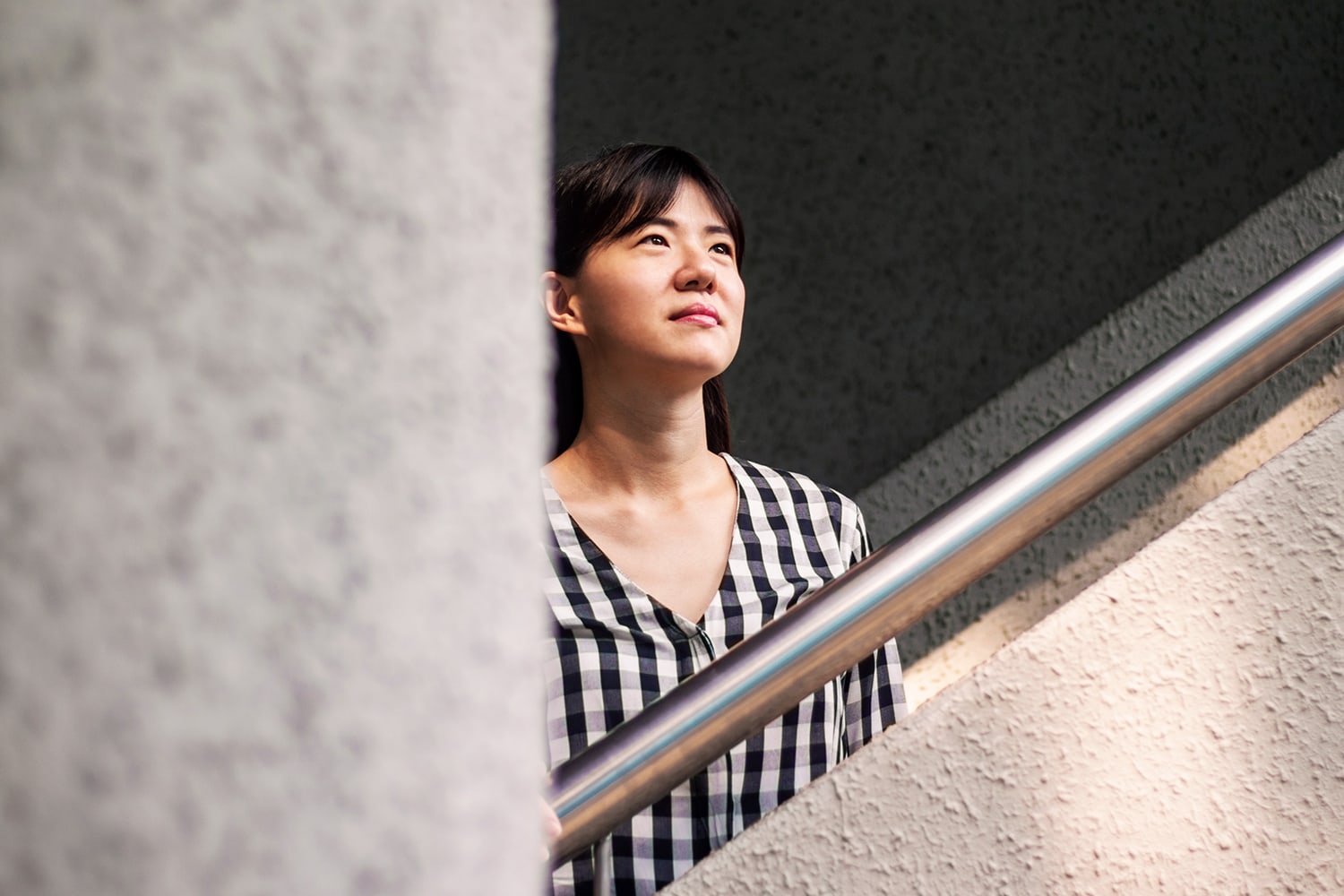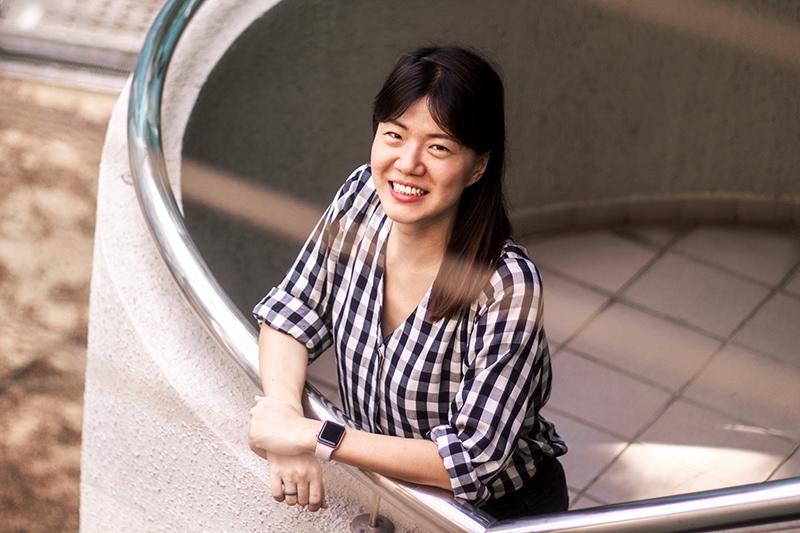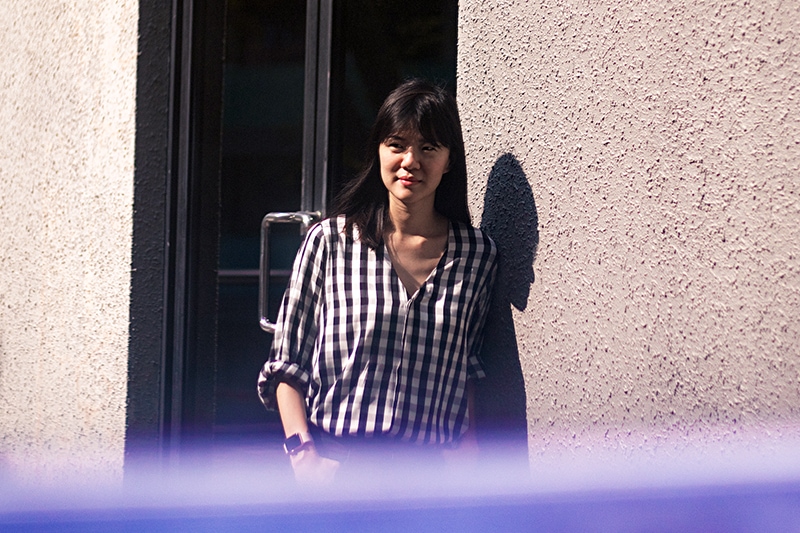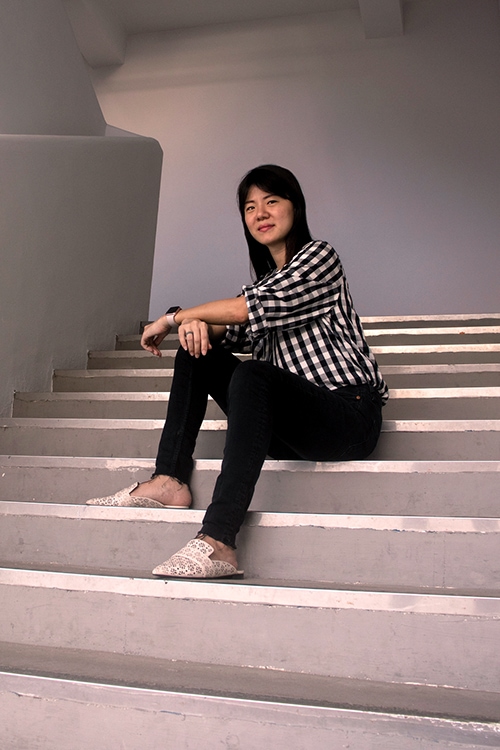How Goh Yiping is Levelling the Playing Field in Venture Capital

Goh Yiping doesn’t play by the rules. Back in the noughties when the word, “start-up”, had yet to gain buzzword status, she was already knee-deep in the game. Though keeping a relatively low profile, Yiping was, in fact, one of the vanguards of e-commerce in Singapore. Not only did she dominate the start-up space, but she also redefined the entire industry as the leading voice of women. Starting in 2004, the serial entrepreneur founded her first company, World Indigo, at the age of 22 while juggling academic responsibilities. In spite of her inexperience as a business neophyte, her inaugural enterprise raised a laudable $350,000 in seed funding, and won the National Startup@Singapore Business Plan Competition. Bitten by the start-up bug, she went on to establish AllDealsAsia at 28, which grew to become the top deal aggregator in the region. Displaying acute foresight and a forward-thinking spirit, she even introduced online customer service to the platform at a time when websites were still slow to adopt live chats. Fast forward four years, AllDealsAsia was acquired by Lippo Group, which kick-started her next venture, Matahari Mall—an e-commerce site that would rise to the top as a multi-million dollar business. While it looks as though Yiping has a knack for scaling companies, the reason for her success isn’t luck or fortune. It’s blood, sweat and tears, particularly in the face of gender dilemmas, stereotypes and inequality. The board member of Female Founders recalls, “I’ve been questioned a few times by male acquaintances about why I’m so ambitious and why I work so hard. They talk about how women shouldn’t be that ambitious because it’ll intimidate men and reduce our chances of attracting them.” It is such chauvinistic chatter that threatens to tear down the fairer sex. Yet, Yiping continues to turn a deaf ear to them, driven solely by her unrelenting ambition to effect change through creating meaningful products, empowering women to step up and lean in, and raising a new generation of innovators. In 2016, the real estate graduate turned e-commerce doyenne switched gears and joined Quest Ventures as a venture partner. Ultimately, the work that she does is bigger than herself. “That ability to multiply impact around me inspired me a lot,” enthuses the 37-year-old industry veteran. With her recent appointment as partner, Yiping has come full circle as a seasoned founder herself and is devoted to helping other entrepreneurs reach their full potential. For years, she’s been lighting the way. Now, she’s passing the torch, paving the way for more women and entrepreneurs to do the same.
ANGELA LOW: What inspired you to become a venture capitalist?
GOH YIPING: Back in 2015, I was in Jakarta building Matahari Mall under Lippo Group after they acquired my start-up, AllDealsAsia. That was when I met James Tan, the founder of Quest Ventures. He recognised the importance of investors having founder experience, and asked me to become a venture partner at Quest. I agreed, and that was how it began. I’ve always enjoyed being a founder because I have a knack for problem-solving and I love building products and teams. While I’ve always known the growth impact of capital on technology, everything crystallised when I was in Indonesia, working with Lippo Group and witnessing the meteoric rise of e-commerce and ride hailing. Slowly, I became drawn to the fact that the impact I create by funding multiple companies as a venture capitalist outweighs the single impact I have when working in a single firm. That ability to multiply impact around me inspired me a lot. Coupled with the learnings, operating experience and relationships built throughout my entrepreneurial journey, I became excited to utilise all these resources and work with fellow entrepreneurs to help them as much as possible in their journeys.
ANGELA: How is the start-up climate in Singapore and Southeast Asia like, as compared to that of Silicon Valley?
YIPING: These are two very different ecosystems. Silicon Valley has matured, so the infrastructure around the start-up ecosystem is very well-developed and robust. Singapore and Southeast Asia are experiencing phenomenal growth rates, and in the last few years, the ecosystem has seen a tremendous increase in the availability of funding and talent, and the expansion of international corporates. More tech giants are also making regional headquarters in Singapore, and exited founders are coming back to contribute to the start-up scene by mentoring entrepreneurs and funding projects. With funds getting bigger, more VCs are moving to Series A and later stages of funding, leaving a gap in the seed stages, which only a handful of VCs like Quest Ventures are able to fill. To help our start-ups grow during the tumultuous early stages, we offer both seed and Series A funding.
ANGELA: So how has the Singapore ecosystem evolved in the last three years?
YIPING: The Singapore ecosystem has somewhat tipped the scales when it comes to the increase in serious money going into start-ups. In the past, it’s rare to hear about seed rounds with investments of more than $1 million. The size of the seed and Series A rounds is getting bigger, and larger cheque sizes are more common now. This shows that investors are now more bullish with the talent and business opportunities here.
While talent is always scarce everywhere in the world, the scene has improved a lot with more experienced hires coming from a combination of people who’ve previously worked at a local, regional or global start-up that has scaled rapidly, sea turtles who’ve worked overseas and returned, and talents from around the world who are moving to Singapore because of our open economy where there are more growth opportunities. Also, taking cues from successful models in the US such as the Y Combinator, there’s been a growth in local accelerators in all categories of focus. While it might not appeal to every start-up person to join such programmes, it nonetheless attracts participants globally. The government has also taken an active role in leading the evolution of the start-up ecosystem by supporting Singapore-based start-ups and internationalisation.
ANGELA: As an investor, what are your goals?
YIPING: Financially, we have a responsibility to generate outstanding returns for our investors, known as limited partners. Practically, since we are founders ourselves, we really enjoy working with entrepreneurs who have found good problems to solve and are changing the world.
ANGELA: Do you focus more on certain industries?
YIPING: Since 2011, Quest Ventures has focused on an overarching “digital commerce” strategy across the region. My background is in e-commerce so I naturally gravitate towards ideas that are commerce-oriented. We are generally sector agnostic, but we tend to invest in the areas of the “digital economy”, which includes commerce, media, fintech, adtech, martech, datatech and artificial intelligence.
ANGELA: What is your portfolio like, and how many start-ups have you invested in thus far?
YIPING: We have more than 40 companies in our portfolio. We’re investors in some of the top companies in Southeast Asia today. Carousell, Carro, ShopBack, 99.co and SGAG are some of the companies we’ve funded back when they were in the early stages of starting up.
ANGELA: How do you judge a founding team?
YIPING: We like to look for traits that show they are scrappy hustlers, who are able to show results quickly. We also look at their background and prior experiences.
ANGELA: I’m sure you get a lot of pitches all the time. How do you keep yourself from becoming cynical when considering new ideas and fresh-faced founders?
YIPING: We fund less than 1% of the companies that apply to us. It’s that competitive. Whenever we meet companies, we’re already curious and have an interest in their business. With that in mind, we’re respectful of the start-ups we meet. The questions we ask help us to understand the founders’ vision, and evaluate the opportunity, feasibility and market sizing. We have many first-time founders coming to us, and those that we’ve accepted into the family have done well. Time and again, we’re reminded by our own investments that first-time founders can succeed—look at the likes of Carousell and ShopBack, who were all first-time founders—so we try not to be cynical when we’re evaluating whether the companies fit our investment thesis.
We may also have a secret sauce, that is, the youthfulness of our team. If you believe, like we do, that the most important changes in society will be discovered and driven by youths, then you will seek out the opinions of young people. While the three partners in Quest Ventures (including myself) are all Generation X, transitional millennials, our analysts are young, hungry and always curious. We’re the only venture fund with a Young Leaders Programme, where we take in pre-university candidates. They help us discover new trends and understand new behaviour. They’re every bit as important to us as the senior team.
ANGELA: What’s a common reason for a venture-backed start-up company to fail?
YIPING: The number one reason is that founders give up and move on due to various reasons.
ANGELA: Why is there a gender investment gap?
YIPING: There seems to be a top-of-the-funnel problem. If more women start or co-found companies, there will be more gender balance at the top of the funnel. Currently, there’s also a lack of gender balance in the key positions of VC firms. Men are primarily the partners and key decision-makers in VC firms. They tend to look at ideas from a man’s perspective. It isn’t uncommon to have an unconscious bias in investing in men who look and behave like yourself.
ANGELA: Why aren’t there more women-led start-ups in Singapore?
YIPING: The lack of women-led start-ups in Singapore is a reflection of our culture, and it also seems to be a global problem. Although there’s been an increase in recent years, there’s still a severe lack of women leadership role models. This lack may discourage women or make it feel unnatural for them to consider becoming start-up founders. Most of the leaders of SMEs and public companies are men, and it looks like it’ll continue to be so. I’ve been questioned a few times by male acquaintances about why I’m so ambitious and why I work so hard. They talk about how women shouldn’t be that ambitious because it’ll intimidate men and reduce our chances of attracting them. This chauvinistic way of thinking in society affects both men and women. Their psyches may have been entrenched for too long in the notion that women shouldn’t be ambitious. Luckily, in this modern society, this perception is rapidly changing.
ANGELA: Do you try to actively fund women-led businesses?
YIPING: 37% of the start-ups we fund have at least one female co-founder. Fund for fund, this compares well against one of the top venture firms in the US that’s also transparent with such figures. We don’t actively segregate men-led businesses from women-led businesses. To put on a gendered lens is also to actively discriminate the other gender. We tend to look at the merits of the business first and foremost.
ANGELA: From your experience, how is a female investor different from a male investor? And what can women bring to the VC table?
YIPING: It goes without saying that men will have a better understanding of male issues, and women will have a better understanding of female issues. Women in general have stronger intuition and sensitivities. They’d bring balance to the VC table when it comes to perspectives and factors influencing decision making. Women also tend to be more empathetic, and thus great listeners, allowing others to be able to express themselves more freely, thereby building trust in relationships.
ANGELA: Have you experienced discrimination and sexism in the VC industry?
YIPING: I’ve not personally experienced overt discrimination or sexism in the VC industry. I think the acts of discrimination or sexism are sometimes a lot more subtle than we think. For example, there were definitely occasions, when new acquaintances would look at my business card, see the word, “partner”, and offer a look of surprise. These occasions are rare, but when they happen, such reactions come equally from men and women. Sometimes, women are the ones that appear more surprised. Because the tech and leadership world has very little female representation, it can sometimes become a “bro club”. While I can be quite a “bro” to many of my male counterparts since I’ve been in tech for so long, I can imagine how intimidating or unfamiliar it can feel for women to want to break into the circle. Also, I am aware that #MeToo issues in this sector are more common than what’s being revealed publicly.
ANGELA: Last year, only 2.2% of the total venture capital investment went to women in the US. Why do you think female founders are receiving less funding than their male counterparts?
YIPING: I don’t have enough data to say that this is true in Singapore. I don't think a company, run by a woman, will receive less funding than a similar one run by a man. As an industry, however, female founders collectively secure less funding than males due to there being more male-led start-ups.
ANGELA: How can this problem be solved?
YIPING: First, by having more female founders at the top of the funnel. We can encourage more women to participate in STEM or entrepreneurial education—most tech start-up founders have backgrounds in this. We can encourage more women to take up leadership roles, and consider starting companies. It’s important to find female role models in all industries, and show that their spouses and partners are supportive of their ambitions. We can also tell the stories of resilience of female role models. Second, by increasing female representation at the rest of the funnel, that is, encouraging VCs to give equal opportunity to women as potential key decision-makers (a partner or director) and ensuring that the interviewing pipeline for any position in the VC has a 50-50 gender representation. VCs should also actively seek out start-ups with female founders and invite them to pitching sessions.
ANGELA: Finally, why is it important to support more female founders?
YIPING: It’s important because it makes sense to support the other 50% of our population. On a financial level, significant research done by BCG, McKinsey and the Kauffman Foundation has shown that women-led companies are more capital efficient and have higher returns (10-12%) than men-led companies. Besides, supporting more female founders will generate the role model effect, where more women will feel encouraged to step out of their stereotypical roles and fulfil their entrepreneurial ambitions. My colleague, Qianyi, runs an impact fund focused on environmental, social and governance issues. One of the focus areas is to level up women in this region.




